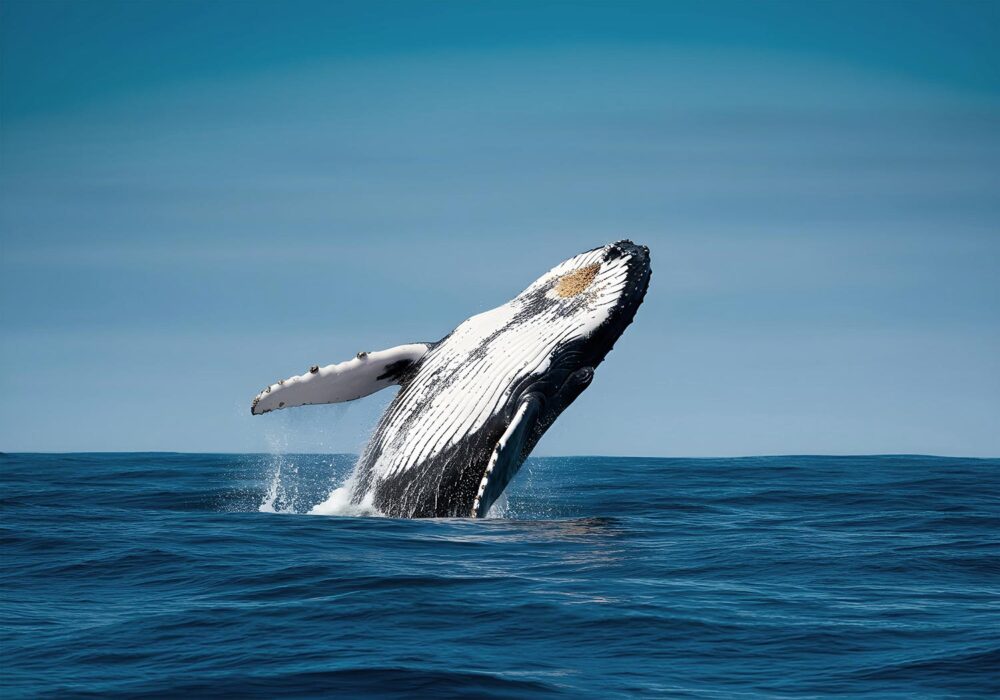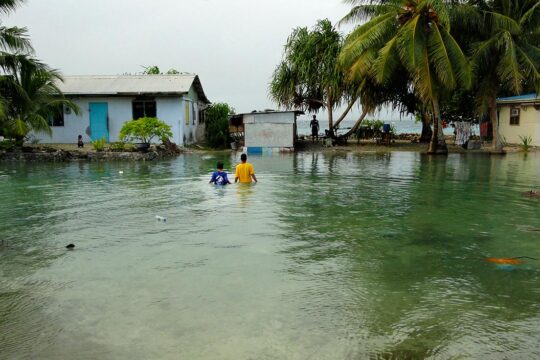In 1609, Dutch jurist Hugo Grotius wrote in Mare liberum that the sea “by nature belongs wholly to all”. In establishing freedom of the seas as a founding principle of modern maritime law, he could not have imagined that, four centuries later, this space he thought inexhaustible would become one of the most silent but devastating theatres of the global ecological crisis. The ocean, the birthplace of life, climate regulator and foundation of our food security, is now threatened in its very integrity. As the United Nations Ocean Conference takes place in Nice, France, this month, a political turning point is on the horizon: recognising the legal personality of the ocean and establishing new mechanisms to defend its rights.
The current state of the ocean is that of an ecosystem in distress. No predictive model can say with any certainty what will happen to marine life in the coming decades, as the warning signs are numerous: collapsing fish populations, massive coral bleaching, and the disappearance of iconic species. Climate change, which is warming surface waters and disrupting major ocean currents, is profoundly destabilising food chains. Chemical pollutants, microplastics, deep-sea mining and industrial fishing are amplifying the collapse of coastal and deep-sea habitats.
In this rapid decline, the survival of our own species is also at stake. We will only be able to get through this century by renewing our alliance with other marine life — provided, first and foremost, that we end the invisible war we are waging against them.
The ocean, a legal ‘no man's land’
But why is the ocean, which is so vital, so poorly protected? Because it remains, in the collective imagination, in our legal compass and in public policy, a ‘non-place’. Too vast, too inaccessible, too silent. It is the last open-air industrial hunting ground, a space where appropriation prevails over cohabitation.
The sea is perceived as a reservoir of resources, a dumping ground, a navigation area or a postcard landscape. But never – or too rarely – as the living environment of a non-human nation, the people of the ocean.
Marine creatures are considered res nullius, things without an owner. And unlike the property rights that protect those who fish them, those who want to live with them have no rights available to defend them, just as these creatures have no rights of their own to invoke against extractive activities.
This lack of legal consideration is no longer just a regrettable ethical problem, but a real obstacle, both biological, for our survival as a species, and ontological, as civilisations. By neglecting to recognise the intrinsic value and rights of marine life, we are sealing our own powerlessness to guarantee the sustainability of life systems on planet Earth.
Ecuador, a pioneer in maritime rights
But our legislative framework, far from being intangible, could be strengthened by the advent of new legal architectures.
On 28 November 2024, Ecuador's Constitutional Court handed down a landmark ruling, affirming for the first time that marine and coastal ecosystems are holders of fundamental rights. Through this ruling, the Andean country – which was the first in the world to enshrine the rights of nature in its Constitution – affirms that “marine and coastal ecosystems have intrinsic value and each of their elements has an individual role that, in turn, contributes to their preservation as a whole. Therefore, it is necessary to adopt measures to guarantee, in a comprehensive manner, their vital processes”.
The dispute concerned a law establishing an 8-nautical-mile (nearly 15-kilometre) coastal zone reserved for artisanal fishing, excluding industrial fishing. The plaintiffs argued that this rigid zoning violated Ecuadorian law, in particular the right to economic development. Drawing on numerous previous rulings on the rights of rivers, mangroves and forests, the Court reiterated that nature and marine ecosystems are subjects of law under Article 10 of the Ecuadorian Constitution. The Court, relying on scientific data and the Constitution, ruled that this ban on intensive fishing practices was not only consistent with the precautionary principle, but that these activities must “be regulated in such a way as to be sustainable and to respect the cycles, functions, structures and evolutionary processes of marine and coastal ecosystems, as well as their conservation and restoration, in order to guarantee the rights of nature and the balance of food chains”.
The court affirmed that economic rights are not unlimited and may be regulated. Consequently, the Constitutional Court emphasised that “the zoning adopted by the contested law” is legitimate in protecting “the rights of nature, the biological rights of human beings and the common and solidarity-based economic model of the artisanal fishing sector”.
This decision sets a precedent in the history of the global nature rights movement and, beyond Ecuador's borders, could influence future case law. It paves the way for a truly ecocentric conception of environmental law and provides concrete tools for judges, communities and citizens who wish to protect marine ecosystems.
Whales and dolphins free in Malibu
Ecuador is not the only country working towards this goal. In Spain, the Mar Menor lagoon has been the first European ecosystem recognised as a legal entity in 2022, with a committee of guardians to represent and defend it. In the United States, many cities have made declarations committing themselves to ensuring respect for the rights of cetaceans. In 2014, the city of Malibu published a proclamation affirming the right of whales and dolphins to freedom. The text states that “the Malibu City Council supports the safe passage of all whales and dolphins in our coastal waters”.
These examples show that a new legal culture is emerging. It breaks with the idea that nature is a well of resources and stocks to be managed, commodified or conserved, but rather a living environment to be defended, a web of interdependencies between beings whose destiny is intimately linked to our own. These advances are not utopian, but rather the concrete implementation of a law of life aimed at providing new legal and political levers to address the challenges of the 21st century.
New rights for the ocean and marine life
That is why, together with the organisation Wild Legal, we have been working since 2021 to promote the rights of nature in collaboration with local authorities, scientists, NGOs and international institutions. On the occasion of the United Nations Ocean Conference in Nice, we are presenting a petition, supported by more than 52,000 signatories, calling for the rights and intrinsic value of the ocean to be enshrined in the final political declaration and encouraging pioneering states to continue their efforts while inspiring others to follow suit.
Our proposals aim to create marine spaces where the rights of the ocean prevail over economic interests, thereby guaranteeing the existence and regeneration of ocean beings and ecosystems. It also involves exploring new forms of governance in which the specific needs and interests of marine beings can be defended, particularly through coastal and indigenous communities, who are guardians of the sea.
To illustrate the practical implications of this legal development, a mock trial will be held on Saturday 7 June 2025, organised by Wild Legal, Longitude 181 and the Réunion-based NGO Vagues. At the heart of this case is the shark culling policy in Réunion, which pits the state against ocean conservation organisations. This mock trial aims not only to highlight ethical controversies and shortcomings in current law, but also to identify levers for integrating the rights of marine environments into our legal arsenal.
For the future, our ambition is to bring these proposals to the fore and develop a law of life, ensuring peaceful coexistence and the fair cohabitation of human and non-human rights. Because environmental justice does not stop at land: it plunges into the abyss, to the silent territories where, against all odds, the beating heart of the blue planet still pulsates.

Marine Calmet is a lawyer by training and a legal expert specialising in the rights of nature, founder and president of the NGO Wild Legal and author of the book ‘Justice for the rights of the starfish, towards the recognition of the rights of the ocean’ (Actes Sud, 2025).







